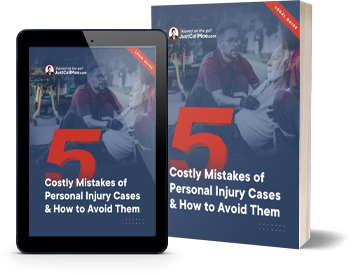A traumatic brain injury (TBI) can happen in an instant but has consequences that last a lifetime. At JustCallMoe law firm, we are well aware of the devastating and enduring impacts a TBI can have on individuals and families. While the immediate effects of a brain injury are often apparent, it is crucial also to understand the potential long-term effects of traumatic brain injury. Let’s explore the lingering physical, cognitive, emotional, and social effects that can persist due to TBI long-term effects.
Physical Effects That Can Last a Lifetime
The physical consequences of a TBI can vary widely depending on various factors, including the circumstances surrounding the injury. Some common long-term physical effects include chronic headaches or migraines, persistent neck and back pain, dizziness, and balance problems.
These physical symptoms can greatly impact an individual’s quality of life and ability to perform daily activities. They may require ongoing medical treatment, therapy, and accommodations. The effects can be particularly challenging when they interfere with basic functions like vision and hearing. Chronic pain can be debilitating and lead to decreased physical activity, which in turn can exacerbate other health issues. Seizures and hormonal imbalances may require long-term medication management and monitoring.
Mobility problems can limit independence and increase the risk of secondary injuries from falls. It is important for individuals with TBIs to work closely with their healthcare providers to manage these physical effects and maintain the highest possible quality of life.
Cognitive and Emotional Effects
While the physical effects of a TBI are often visible, the cognitive and emotional impacts can be more subtle but equally life-altering. Some of the long-term cognitive effects may include memory problems, both short-term and long-term, difficulty concentrating and maintaining attention, slowed processing speed, and impaired judgment and reasoning skills.
On an emotional level, a TBI can lead to depression and anxiety, mood swings and emotional lability, irritability and anger management issues, apathy and lack of motivation, personality changes, and post-traumatic stress disorder (PTSD). These cognitive and emotional effects can strain relationships, impact work performance, and lead to social isolation. Professional support from neuropsychologists, counselors, and support groups is often necessary.
The cognitive impacts of a TBI can make it difficult for individuals to return to work or school, as they may struggle with tasks that were once easy for them. Memory problems can affect daily functioning, while slowed processing speed can make it challenging to keep up with conversations or absorb new information. Impaired executive functioning can impact decision-making, planning, and organization, leading to frustration and decreased independence. Emotional effects can be particularly distressing, as individuals may feel like they have lost a sense of who they are. Mood swings, irritability, and apathy can be difficult for both the individual and their loved ones to cope with. It is crucial for those living with the long-term effects of traumatic brain injury to have access to ongoing support and treatment to help them navigate these challenges and maintain their mental health.
Social Impacts and Role Changes
The long-term effects of TBI go beyond the individual and can profoundly impact family dynamics and social roles. Spouses may find themselves taking on a caregiver role, children may struggle with a parent’s personality changes, and friendships may fade due to communication difficulties or altered social skills. A TBI can also affect an individual’s ability to work, leading to job loss, financial strain, and an altered sense of identity and purpose. Vocational rehabilitation and workplace accommodations may be necessary to help individuals with TBIs maintain or regain employment.
The social impacts of a TBI can be some of the most challenging to cope with as they affect not only the individual but also their entire social network. Family members may need to adapt to new roles and responsibilities, which can lead to increased stress and burnout. Children may have difficulty understanding and adjusting to changes in their parent’s behavior or personality. Friendships may become strained as individuals with TBIs struggle with communication, social cues, or altered interests and activities. The financial impact of job loss or decreased earning potential can add additional stress to already challenging situations.
Increased Health Risks Down the Road
Research has shown that experiencing a TBI can increase the risk of developing certain health conditions later in life. These include neurodegenerative diseases such as Alzheimer’s, Parkinson’s, chronic traumatic encephalopathy (CTE), stroke, chronic pain conditions, substance abuse and addiction, and psychiatric disorders. While not everyone who experiences a TBI will develop these conditions, it is important for individuals and their families to be aware of the potential risks and monitor for warning signs.
The mechanisms behind these increased risks are not fully understood, but it is thought that the initial injury may trigger or accelerate underlying disease processes. For example, a TBI may cause inflammation and damage to brain cells that can accumulate over time and contribute to the development of neurodegenerative diseases. Chronic pain and substance abuse may develop as individuals struggle to cope with the ongoing physical and emotional effects of their injury.
Psychiatric disorders like depression and anxiety may be related to both the direct effects of the injury on brain function and the psychosocial stressors that often accompany life after a TBI.
Individuals with a history of TBI should work closely with their healthcare providers to monitor for early signs and symptoms of these potential complications, as early intervention can be key to managing or slowing their progression. Maintaining a healthy lifestyle, including regular exercise, a balanced diet, and social engagement, may also help protect brain health and reduce the risk of developing these conditions over time.
The Importance of Long-Term Support and Advocacy
At JustCallMoe, we know the enduring impacts of traumatic brain injuries. Our experienced attorneys are dedicated to advocating for the rights and needs of individuals with TBIs and their families. We work tirelessly to secure the compensation, resources, and support necessary to navigate life after a brain injury.
If you or a loved one is living with the long-term effects of TBI due to someone else’s negligence, reach out to our compassionate team to learn how we can help you on the path forward. JustCallMoe today!

 (866) 225-5663
(866) 225-5663



